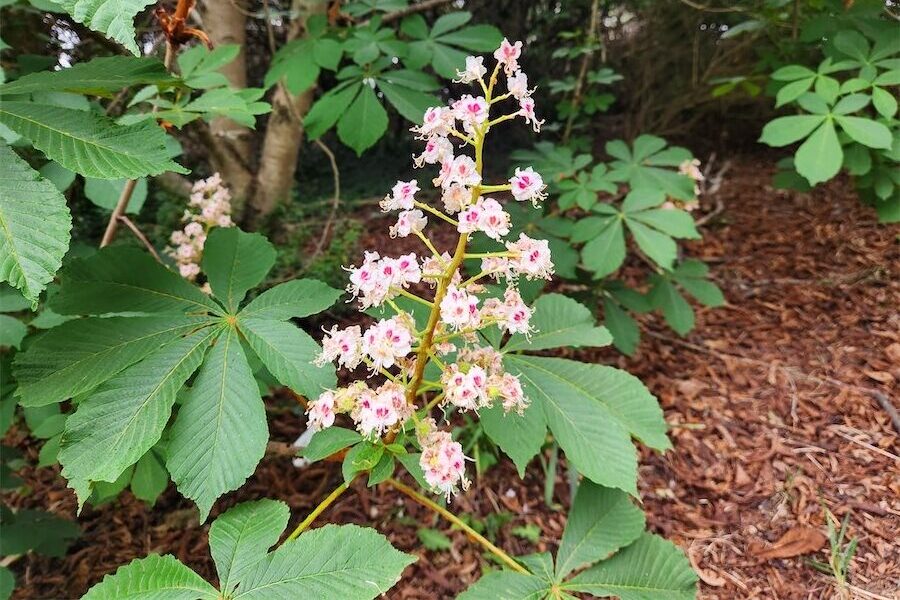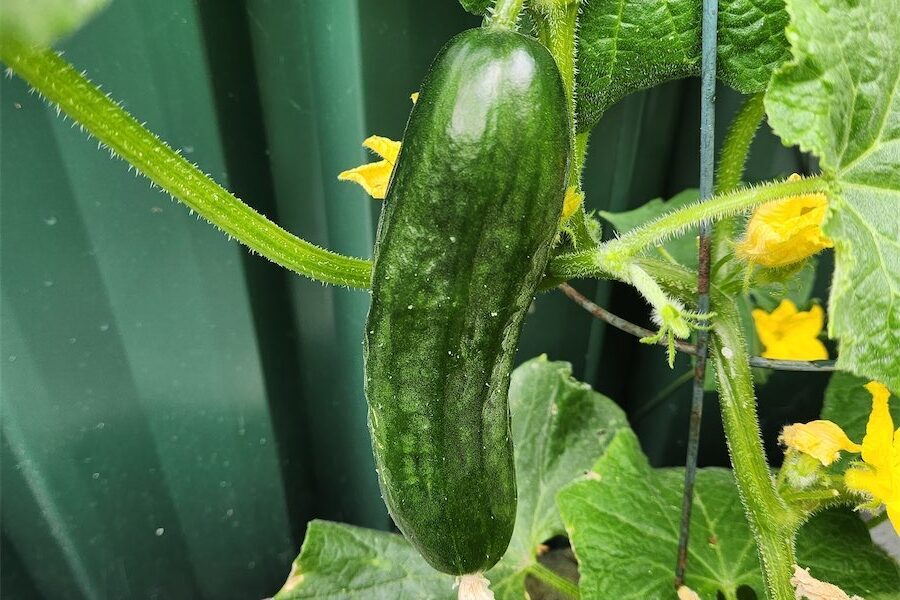If there’s room on the trellis, cucumbers are a good summer crop to grow with tomatoes, says gardening columnist JACKIE WARBURTON.
Cucumbers are easy to grow, not bothered by crop rotation in the vegetable patch and are happy to grow without anything other than lots of compost and water.

They prefer to be grown on a trellis to keep their fruit off the ground.
They are monoecious, which means there are male and female flowers on the one plant, and the bees will need to pollinate the flowers for fruit to set.
If the female flower is not pollinated, a small yellow fruit will form and drop off. More flowers will come, but encourage more bees to the garden to prevent this from happening.
There are a few cucumbers to choose from; the most popular locally are Lebanese, continental or apple cucumbers.
Lebanese cucumbers are the biggest to grow and need the most room. They’re ready for harvest from about 15-20cm long.
Continental cucumbers are ready for harvest around 40cm long and don’t need as much space. My favourite is the apple cucumber, which puts crunch in salads.
There are speciality small cucumbers to try such as baby cucumbers, gherkins and cucamelons with the advantage of pickling or eating raw in salads.
Cucumbers like a little lime in the soil and their pH about six. Keep them growing fast. If they become stressed, they’lll taste bitter.
NOW the frost has gone, fruit and vegetables from the solanaceae family – tomatoes, eggplants, capsicums – can be planted.
Tomatoes like an acid soil. Place a little dolomite lime in and around the soil to help prevent future blossom end rot. Unfortunately, once this fungal disease is present, it’s hard to eradicate.
All solanaceae plants need compost and mulch. Add tomato food that’s high in potash for flower and fruit production.
Tomatoes need around six to eight hours of daily sunlight to grow well. Large tomatoes will need to be staked, a light trellis may also be required to support the tomato vine.
One that I am growing this year is a locally bred donkey balls tomato and also a few Romas for cooking sauces.
I am planting basil under the tomatoes because they grow well together and adding bee-attracting flowers, such as calendulas, alyssum and marigolds.

DECIDUOUS trees provide a lush, leaf canopy cover that cools the soil and makes the understory plants easier to grow.
There are so many trees to choose from that suit our environment, but a flowering tree is a good starting point.
Some of the most popular large flowering trees for Canberra are Paulownia, crab apples and Manchurian Pears but for something a little unusual – if there is space – a horse chestnut (Aesculus hippocastanum) is worth a try.
It grows at least 15 metres tall and is a beautiful park tree or a specimen tree in a large garden.
The flowers are quite spectacular; pyramid shaped, they sit up to look like candles on the tree. The creamy white flowers come with deeply divided, attractive leaves.
There is a red-flowering horse chestnut that grows slightly smaller at 10 metres tall, but still has the same gracious growth habit.
Large examples of the tree can be seen in Commonwealth Park or at the National Arboretum (Forest 4) where they have benefitted from the wet weather over the last few years.
Jottings
- Plant potted colour for Christmas.
- Deadhead roses to encourage new growth.
- Only light tidy hedges as the summer heat sets in.
- Tie up berry canes to keep them off the ground.
Who can be trusted?
In a world of spin and confusion, there’s never been a more important time to support independent journalism in Canberra.
If you trust our work online and want to enforce the power of independent voices, I invite you to make a small contribution.
Every dollar of support is invested back into our journalism to help keep citynews.com.au strong and free.
Thank you,
Ian Meikle, editor






